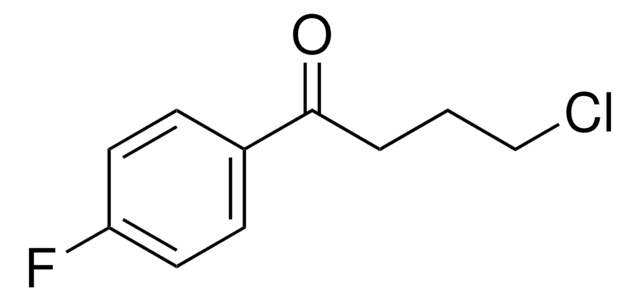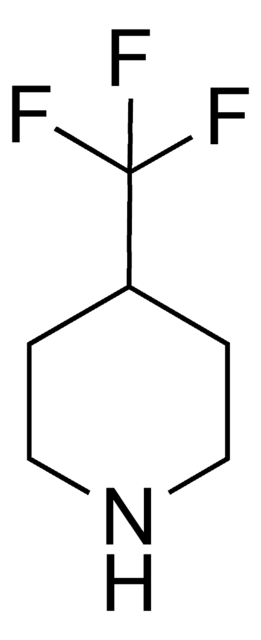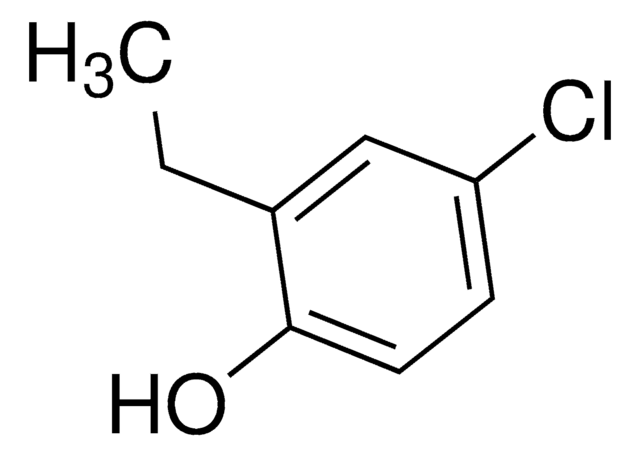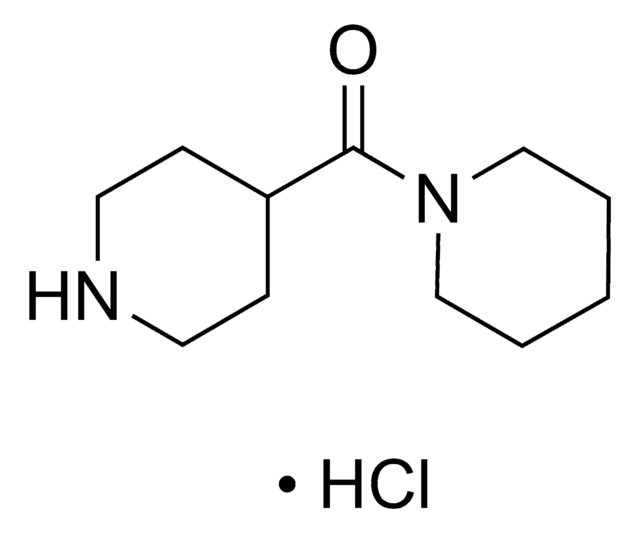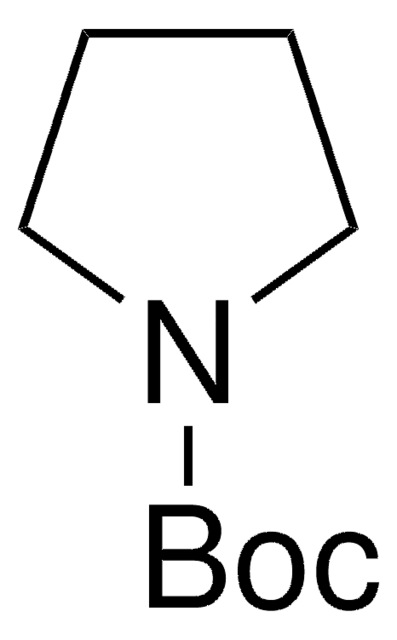C66056
4-(4-Chlorophenyl)-4-hydroxypiperidine
99%
Synonym(s):
Haloperidol metabolite I, 4-(4-Chlorophenyl)-4-hydroxypiperidine, 4-(4-Chlorophenyl)-4-piperidinol
About This Item
Recommended Products
Assay
99%
form
powder
mp
137-140 °C (lit.)
SMILES string
OC1(CCNCC1)c2ccc(Cl)cc2
InChI
1S/C11H14ClNO/c12-10-3-1-9(2-4-10)11(14)5-7-13-8-6-11/h1-4,13-14H,5-8H2
InChI key
LZAYOZUFUAMFLD-UHFFFAOYSA-N
Looking for similar products? Visit Product Comparison Guide
Signal Word
Danger
Hazard Statements
Precautionary Statements
Hazard Classifications
Acute Tox. 4 Oral - Aquatic Chronic 3 - Eye Dam. 1 - Skin Irrit. 2 - Skin Sens. 1
Storage Class Code
11 - Combustible Solids
WGK
WGK 3
Flash Point(F)
Not applicable
Flash Point(C)
Not applicable
Personal Protective Equipment
Certificates of Analysis (COA)
Search for Certificates of Analysis (COA) by entering the products Lot/Batch Number. Lot and Batch Numbers can be found on a product’s label following the words ‘Lot’ or ‘Batch’.
Already Own This Product?
Find documentation for the products that you have recently purchased in the Document Library.
Our team of scientists has experience in all areas of research including Life Science, Material Science, Chemical Synthesis, Chromatography, Analytical and many others.
Contact Technical Service